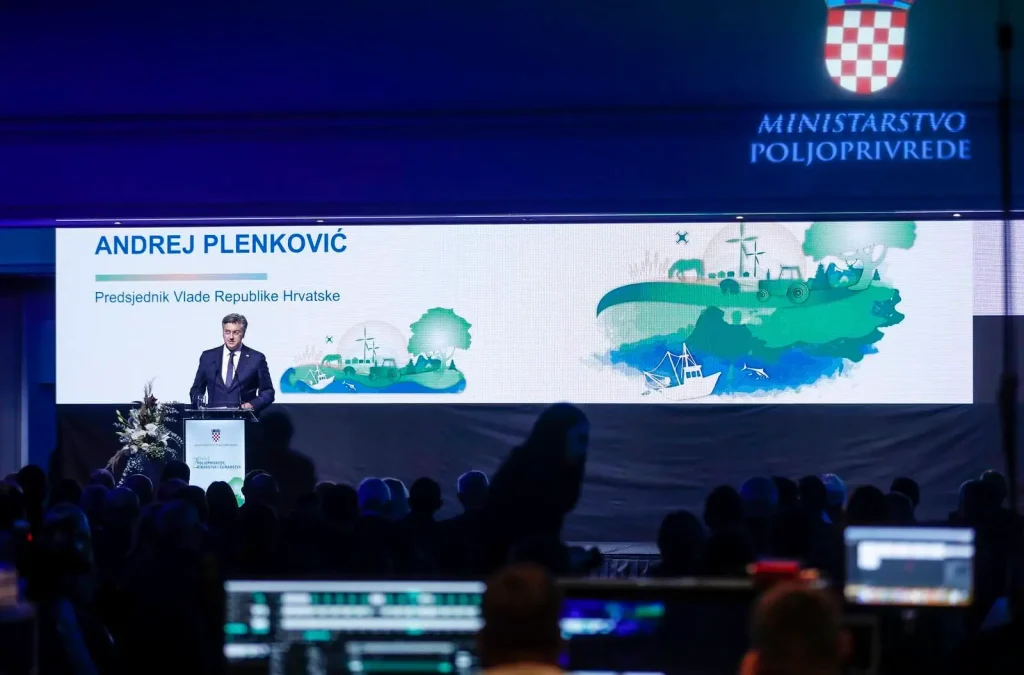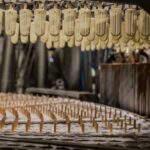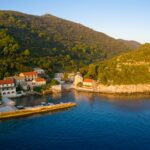Visiting the agriculture ministry’s fair promoting the Croatian farming sector in Zagreb, PM Plenković reassured the general public that in the event of a further rise of the energy crunch prices, there were additional tools available to his government to use them to calibrate the prices in the country.
He underscored that the internal discussions in the government and also their talks with international partners over the last two months had been focused on the energy prices, including the trends in prices of electricity and natural gas.
Regarding the prices of gas supplies and electricity, Plenković said that “the situation is stable in Croatia” and that the country “is in a much better position than many others.”
Concerning petroleum products, since 2014, fuel prices in the country have been fully defined by the market, he recalled.
Until the latest developments considering the fuel prices globally, the government had never applied Article 9 of the Law on Petroleum Products that envisages the adoption of a decree on capping the prices, Plenković said.
That article stipulates that only in exceptional circumstances, the government can determine the maximum retail prices of fuels for a period no longer than 90 days in order to protect consumers or for some other justified reasons.
On 14 October, the government passed a decree limiting the retail price of petrol to HRK 11.10 (€1.48) per litre and the price of diesel to HRK 11.00 (€1.46) per litre for the next 30 days.
Plenković today explained that the government had opted for that interventionist move when it found that the conditions were met.
“We managed to overcome the biggest health, economic and financial crisis and consequently avoided the potential biggest social crisis in the last 600 days, without large-scale lay-offs and without a series of bankruptcies and social fractures, while all the state services continued to function as usually, and we managed to retain the country’s investment rating and good reputation on the domestic and international financial markets, with a clear roadmap for Croatia’s accession to the euro area. Therefore, we will not let a decline in the living standards of our citizens due to the energy prices, now when we managed to ensure funds for the economic recovery,” Plenković said.
Describing the government’s response to the energy crunch prices as agile and prompt, he added that in the event of the escalation, his cabinet had additional tools at its disposal to address the situation.
He said that he expected energy producers and distributors to assume a part of the burden. “I believe that they are sensible. They are not the companies that cannot endure such burden on their margins and or that it would adversely affect their business,” he said.
He added that the government would follow the developments in the period to come and that the next moves would be considered in three week’s time before the expiry of the current 30-day price limiting.
Asked by the press about aid to agricultural producers faced with high fuel prices, Minister Marija Vučković recalled that farmers and fishermen could use the so-called blue-dyed fuels that have the government-subsided prices.
The minister said that the authorities were taking other measures to help the whole sector to be more competitive.
Use of blue-dyed diesel in 2020 approved for 97,200 farmers
In January 2020, the Paying Agency for Agriculture, Fisheries and Rural Development granted 97,200 farmers the right to use blue-dyed diesel in 2020 in the total amount of 173.1 million liters, .
The farmers could use cards with allocated amounts of blue-dyed diesel as of early January last year.
For more on business, follow TCN’s dedicated page.
For more about Croatia, CLICK HERE.








